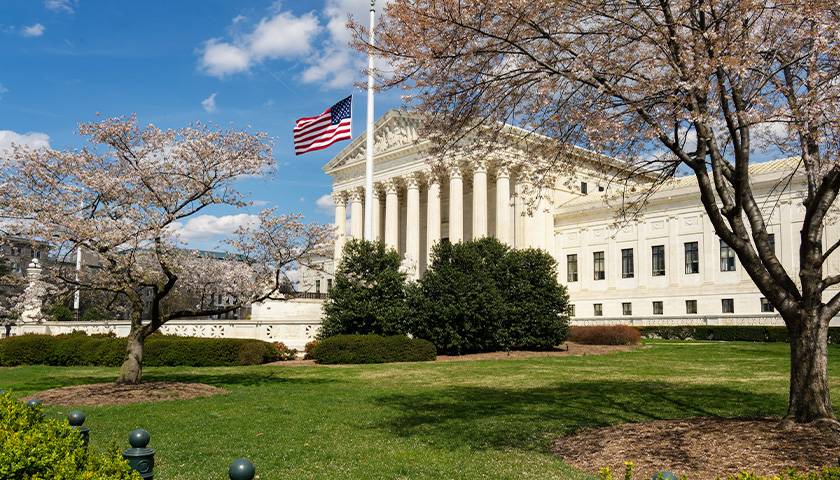by Katelynn Richardson
The Supreme Court declined Monday to hear local governments’ climate damage lawsuits against energy companies on Monday.
The companies, who localities want to hold financially accountable for burning fossil fuels they allege damaged the climate, appealed their cases to the Supreme Court, asking it to weigh in on whether the claims should be heard in state or federal courts. The Court’s decision benefits the environmental activists behind the lawsuits, who prefer the matter to play out in state courts, where judges may be more inclined to rule in their favor, experts previously told the Daily Caller News Foundation.
Justices denied to hear cases against energy companies out of Colorado, Maryland, California, Hawaii, and Rhode Island. In its brief, Suncor Energy had noted its case against Boulder County, Colorado was “an ideal vehicle for addressing” questions of jurisdiction facing the court in similar cases.
 “The Supreme Court’s decision to not hear the federal law issues in this case is certainly disappointing because it risks the creation of a patchwork of state court approaches to important public policy matters that are inherently federal and global in nature,” Phil Goldberg, special counsel to the Manufacturers’ Accountability Project, said in a statement provided to the DCNF.
“The Supreme Court’s decision to not hear the federal law issues in this case is certainly disappointing because it risks the creation of a patchwork of state court approaches to important public policy matters that are inherently federal and global in nature,” Phil Goldberg, special counsel to the Manufacturers’ Accountability Project, said in a statement provided to the DCNF.
Goldberg said the Court’s decision does not change the fact that selling energy is “not a liability inducing event.”
“[T]oday’s events do not undermine the fact that, even under state law, selling Americans the energy they need and use every day is not a liability inducing event,” he said. “When courts get to the substance of these claims—just like in New York City’s case that was dismissed in 2021—it will be evident that this litigation has no legal or factual foundation.”
U.S. Solicitor General Elizabeth Prelogar had advised the Court in a brief filed in Suncor Energy v. Board of County Commissioners of Boulder County to let the cases be heard in state, not federal courts, a move 0pponents criticized for departing from the previous administration’s established position.
While the Court issued no opinions shedding light on its decision, it did note that Justice Samuel Alito, who owns stock in oil companies, took no part in the decision to deny certiorari in the Boulder case and that Justice Brett Kavanaugh would have granted the petition.
“The challenge of our time is developing technologies and public policies so that the world can produce and use energy in ways that are affordable for people and sustainable for the planet,” Goldberg continued. “It should not be figuring out how to creatively plead lawsuits that seek to monetize climate change and provide no solutions.”
– – –
Katelynn Richardson is a reporter at Daily Caller News Foundation.
Photo “U.S. Supreme Court” by David Dibert.




